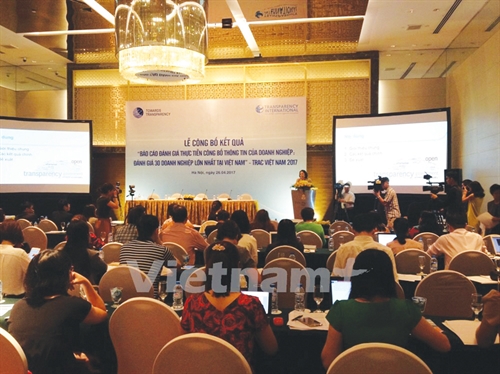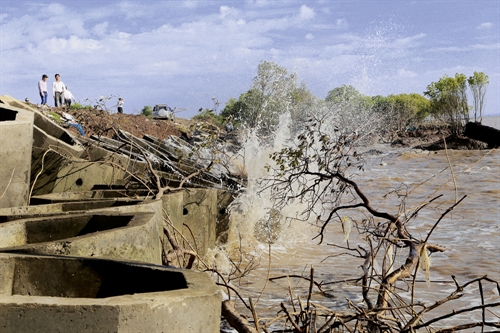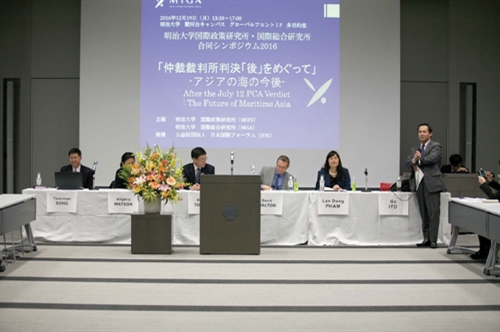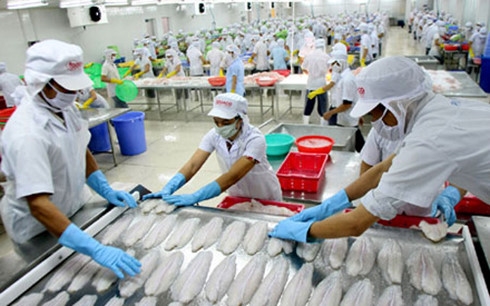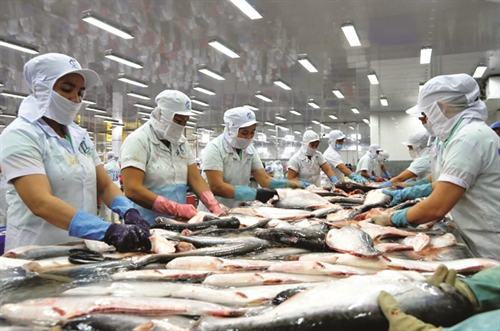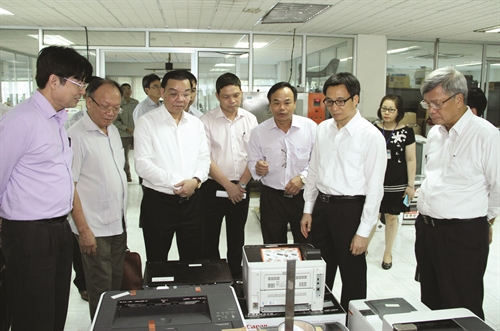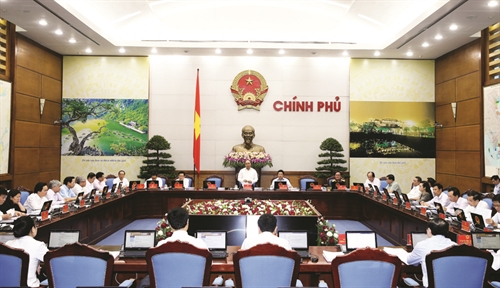By Pham Thanh Trung, Vu Hai Yen, Hoang Thuy Linh[1]
Over the past few years, in the context that Vietnam is increasingly open and promoting international economic integration, instability of the world economy has exposed state-owned enterprises’ ineffectiveness and shortcomings. A number of these enterprises have fallen into debt and difficulties. State-owned enterprises (SOEs) are also considered a promising land for corruption and group interest that make their shortcomings worse.[2] Although the Anti-Corruption Law has specific provisions on information disclosure and transparency in the management of SOEs, its practical enforcement remains problematic.
Requirement for disclosure and transparency in management of SOEs
SOEs are holding key industries and sectors of the economy, such as construction, transport, oil and gas, communication, telecommunications, and production of industrial and consumable goods. As of October 2016, there were in total 718 enterprises in which the State holds 100% of the charter capital.[3] SOEs hold not only key industries and sectors but also large resources. According to 2014 figures, SOEs used 70% of the land, 70% of ODA funds in the area of production and trade, and 60% of credit of the whole economy.[4] Holding large resources of the country, SOEs’ performance exerts great impacts on the national economy development.
However, many violations committed by SOEs have been detected concerning investment outside the core business, investment exceeding the charter capital, investment exceeding the percentage allowed by law, or violation in managing and using capital and assets, causing waste and ineffectiveness. Along with the requirement of tightening supervision by competent state authorities, the lessons learnt from SOEs’ violations have also raised an urgent need for disclosure of information relating to the management and use of state funds and assets. Essentially, state assets originate from the citizens’ contribution. Article 53 of the 2013 Constitution has asserted: “Land, water resources, mineral resources, sea and airspace resources and other natural resources and assets invested and managed by the State are public property; they belong to the citizens who are represented by the State as the owner and manager of this public property.” As real owners of the property, the citizens are entitled to know about the status and use efficiency of such assets. Without effective management of investments and utilization of state assets invested in SOEs, huge resources of the country will be used in a wasteful manner, leaving room to corruption and misconducts. One solution for effective management of state assets is to strengthen information disclosure and transparency.
Therefore, specific regulations on information disclosure and transparency relating to the state funds and assets invested in SOEs are also required. Information disclosures will enable the authorities acting on behalf of the State to know their responsibilities for the management of state funds and to limit wasteful use of these funds and avoid corruption.[5] At the same time, state management agencies would also timely be aware of the operational situation of enterprises and detect any signals or risks of violation for timely adoption of policies to help reduce any damages that may arise to the State and society.
Besides, one of the reasons which may lead to popular misconducts of SOEs is the human factor, including the leadership and management capacity of managerial positions. This goes back to the matter of personnel appointment. In practice, there are a number of improper and inappropriate appointments of inexperienced people or relatives or acquaintances, thus turning SOEs into “family companies”[6] as covered in the media recently. Therefore, disclosure of appointments and incomes of SOE leaders is also an essential requirement.
The 2005 Anti-Corruption Law, revised in 2007 and 2012, contains a provision on information disclosure and transparency in the management of SOEs (Article 18) which regulates (i) disclosure responsibility of SOEs and (ii) disclosure responsibility of representatives of SOE owners and the Ministry of Finance. Additionally, there are other legal documents which address specific matters including the Law on Management and Use of State Capital Invested in Production and Business Activities at Enterprises and Decree No. 91/2015/ND-CP stipulating the investment of state capital and the management and use of capital and assets in enterprises (Decree 91).
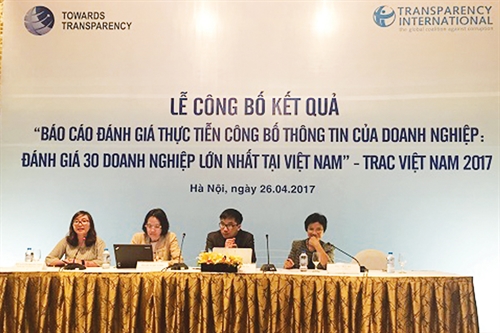 |
| Ceremony to announce the report “Transparency in Corporate Reporting: Assessing the 30 largest companies in Vietnam” (TRAC Vietnam 2017)__Photo: Internet |
Information to be disclosed by SOEs
According to Article 18.1 of the Anti-Corruption Law, SOEs are responsible for disclosing the following information:
(i) State capital and assets invested in enterprises; enterprises’ funds and assets invested in subsidiaries and associated companies; investments outside the core business;
(ii) Preferential loan;
(iii) Financial statement and audit statement;
(iv) Establishment and use of enterprises’ funds;
(v) Appointment of leadership and managerial positions; and,
(vi) Full name, scope of tasks, salaries and other incomes of persons in the Members’ Council or Board of Directors, of the General Director, Deputy General Directors, Directors, Deputy Directors, Supervisors and Chief Accountant.
Regarding the investment of state capital in enterprises, two relevant legal documents should be mentioned here, namely the 2014 Law on Management and Use of State Capital Invested in Production and Business Activities at Enterprises and Decree 91. Accordingly, information disclosure and transparency are asserted as one of the principles for investment, management and use of state capital in enterprises.[7] SOEs are responsible for maintaining and developing state funds invested in enterprises. SOEs must report on all fluctuations, including the increase or decrease of state funds invested in enterprises to the agency representing the owner and the finance agency for monitoring and supervision.[8] This provision not only requires simply a list of state funds and assets in enterprises but also requests disclosure of how enterprises use them.
In respect of investments of enterprises in subsidiaries, associated companies and investments made outside their core business, Article 21 of Decree 91 contains strict stipulations, in particular: investments made outside the enterprise must be relevant to the main business field and must not affect the production and business activities of the enterprise; SOEs are not permitted to make capital contributions to or invest in real estate business (except in cases where the core business of the enterprise is real estate as prescribed by the Law on Real Estate Business); SOEs are not permitted to make capital contributions to or buy stocks of banks, insurance companies, securities companies, venture funds, securities investment funds or securities investment companies (except in special cases approved by the Prime Minister). SOEs must restructure all investments made in the fields which are not permitted by the Prime Minister.
Up to now, various state-owned groups and corporations still maintain investments outside their core business. By the end of 2015, the task of withdrawing state funds invested in areas outside the core business was still very heavy (about VND 17,655 billion).[9] Therefore, the disclosure of this information will ensure a monitoring and supervision mechanism of state authorities over the investment of state funds by SOEs as well as supervision of the progress of withdrawing funds invested outside the core business of these enterprises.
With regard to appointment of leadership and managerial positions, Decree No. 97/2015/ND-CP providing detailed regulations on appointment of high positions in state-owned single-member limited liability companies and the 2014 Law on Enterprises stipulate general appointment requirements as well as criteria and the appointment procedure for specific managerial positions.[10]
One of the deeply rooted causes leading to the failure and massive losses of SOEs is their weak leadership and management in which the primary responsibility rests with the leaders and managers of the enterprises. Violations of regulations on the process and requirements of appointment of managers still happen in SOEs, such as the official letter of proposal for appointment failing to provide necessary information as required; bringing family members or relatives to hold positions in subordinate departments or units. Most of those who are appointed thanks to this kind of relationship do not later show efficient work performance, which makes their enterprises operate worse. This kind of power abuse has created a so-called model of recruitment of “descendants first, money second” that has negatively affected the performance of SOEs.[11]
Therefore, information disclosure and transparency applied to the appointment of leadership positions in SOEs will help competent authorities supervise this important work, and at the same time push enterprises to ensure that only people with sufficient ethical qualities and excellent capabilities will be selected for the leadership positions.
Forms of disclosure to be applied by SOEs
Pursuant to Article 18.2 of the Anti-Corruption Law, the above-mentioned information must be disclosed in the form of written report to be submitted by SOEs to competent authorities, specifically:
- For SOEs established by the Prime Minister: Written reports should be submitted to the Ministry of Finance, the line ministry in charge of the SOE’s core business field and the Government Inspectorate.
- For SOEs established by ministers: Written reports should be submitted to the Ministry of Finance, the line ministry in charge of the SOE’s core business field, the Government Inspectorate and the Inspectorate of the line ministry.
- For SOEs established by chairpersons of provincial-level People’s Committees: Written reports should be submitted to the provincial-level Department of Finance, the line department in charge of the SOE’s core business field and the provincial-level Inspectorate.
The relationship in the management of SOEs involves three parties: the line management agency, the owner’s representative and the SOE. Currently, ministries are representatives of state ownership in SOEs and, at the same time, they are state management agencies. The lack of separation between these functions has led to an encroaching of power between state management and the management by SOE owners. Furthermore, the management mechanism and managerial officials are not professional enough.[12] Therefore, to separate the function of representing state ownership from the function of state management of SOEs and to remove the function of ministries or People’s Committees acting as representatives of state ownership are needed in the process of restructuring SOEs. At present, the Ministry of Planning and Investment has been appointed to devise a project on establishing a body acting on behalf of the State in SOEs.
In this tripartite relationship, apart from the responsibility for information disclosure of SOEs themselves, the relevant state authorities are also responsible for disclosure. However, currently there is no regulation stipulating the obligation to disclose information on activities of line ministries in managing SOEs. Decree 81/2015/ND-CP on information disclosure of SOEs (Decree 81) and Decree 87/2015/ND-CP on supervision of state capital investment in enterprises; financial supervision, performance assessment and disclosure of financial information of SOEs and enterprises having state capital (Decree 87) only provide for responsibilities for information disclosure of agencies representing the owner and the Ministry of Finance.
According to Decree 87, one of the contents that the agency representing the owner should disclose is the report on the situation of investment, management and use of state capital in the enterprise. The disclosure method is provided in Decree 81. Accordingly, the information disclosure must be made at the same time on the e-portal or website and in publications and other mass media as prescribed by the law.[13] In addition, Decree 81 provides that the agency and the authority acting on behalf of the State must disclose biannual and annual financial statements of enterprises on their e-portals or websites.[14] Regarding the salary and bonus of managerial positions in SOEs, the representative of the state owner must disclose the funds for salaries, remuneration and bonus and average monthly salary, remuneration, bonus and income of each managerial official in the preceding year on the website of the agency, and at the same time, submit a consolidated report to the Ministry of Labor, War Invalids and Social Affairs.[15]
The Ministry of Finance is also responsible for publicizing the Government report on investment activities, management and use of state capital in enterprises as well as opening a separate column for “Disclosure of enterprise financial information” on its e-portal to receive and disclose financial information of enterprises.[16]
Implementation of disclosure requirements and some problems
The responsibility of SOEs for information disclosure has been mentioned largely, but mainly related to general operation information as required by Decree 81 and Decree 87. However, enterprises’ obligations to disclose information relating to the management of SOEs such as state capital and assets invested in the enterprise, use of funds, etc., are rarely mentioned.
From state authorities’ side, a column for “Disclosure of enterprise financial information” has not been found on the e-portal of the Ministry of Finance as required in Decree 87.
Regarding the disclosure of salary and bonus paid to SOE leaders, the salaries of leaders in state-owned economic groups and corporations have always been a topic of interest to the public. In fact, there is a case where SOE leaders receive salary and bonus worth billions dongs every year, but this was hidden until being unearthed by the inspectorate.[17] At present, only a few SOEs and representatives of state owner adopt information disclosure while most of them “play dumb.”[18] SOEs disclose information by sending reports to ministries while few of them post this information on their websites.[19]
According to the Vietnamese legal documents, the term “disclosure” does not always mean to announce widely to the public. Among types of publicity set out in Article 12 of the Anti-Corruption Law, posting on the website can be seen as the most open and convenient way of public disclosure ensuring that a large number of organizations and individuals can easily access such information.
Regarding disclosure in the management of SOEs, Article 18,2 of the Anti-Corruption Law specifies that “written report” is obligatory for SOEs while use of other forms of disclosure totally depends on the willingness of the enterprises. As such, disclosure responsibility in this case is about reporting only. The title of Article 18 “Disclosure and transparency in the management of SOEs” seems to be advanced which brings expectations to readers for an extensive disclosure, but its contents are only packed in a unique obligation “to report”.
Disclosure among state management agencies and enterprises only may lead to tolerable treatment or offering good conditions to each other in exchange of something.[20] The disclosure and transparency we are talking about and looking forward to means a wide disclosure to the public to make the people aware of and supervise the disclosed information. Limiting disclosure by requesting only a “report” will not guarantee the true meaning of disclosure.
Suggestions for improvement
Diversifying forms of disclosing information toward public disclosure
Analysis of the current legal framework in Vietnam shows that SOEs have few obligations to disclose information. Requirements for disclosure are mainly internal i.e., reporting to state authorities.
SOEs have an obligation to submit a report to a number of state agencies, for example, national SOEs must send reports to their line ministry, the Ministry of Finance, Ministry of Labor, War Invalids and Social Affairs (relating to salary and bonus of managerial positions in SOEs) and the Government Inspectorate/Inspectorate of the line ministry. The complexity and overlapping of such requirements dilute accountability and create administrative burden in terms of compliance with SOEs’ obligations and affect the capability of SOEs in meeting internal and external reporting requirements in a practical and comprehensive manner.[21]
Public disclosure is mainly voluntary. Given the current disclosure requirements, the final goal of disclosure and transparency to facilitate the public monitoring role cannot be ensured. As such, regulations on responsibility for disclosure must be directed toward disclosure to outside of SOEs so that the public can be aware of and able to access the disclosed information. Therefore, Article 18.2 of the Anti-Corruption Law should extend forms of disclosure such as posting on website, publications, announcement in the mass media.
Handling violations of information disclosure of SOEs
Neither Decree 81 nor the Anti-Corruption Law and other relevant legal documents contain regulations on handling violations of regulations on information disclosure related to management of SOEs. Once there are regulations defining the responsibilities of SOEs and other relevant agencies for information disclosure, a corrective mechanism must be in place to deal with violations of this obligation. Such mechanism will ensure the effect of the above-mentioned regulations and urge SOEs to take responsibility for information disclosure in conformity with the regulations and ensure the right to access information of the people. Therefore, it is necessary to supplement regulations for handling SOEs and authorities acting on behalf of state owner in SOEs and the Ministry of Finance for failure to comply or properly comply with disclosure requirements for information relating to management of SOEs.-
